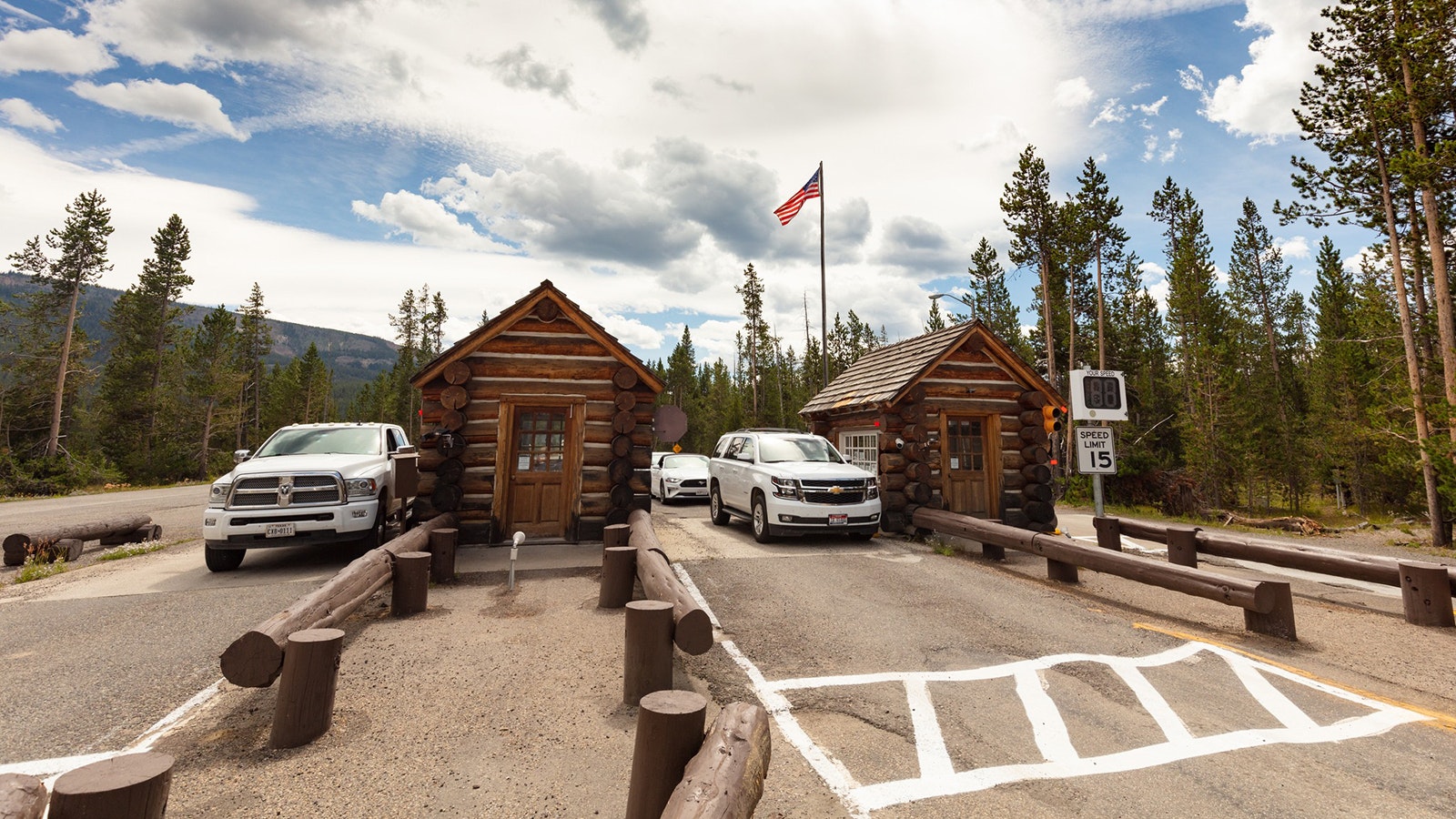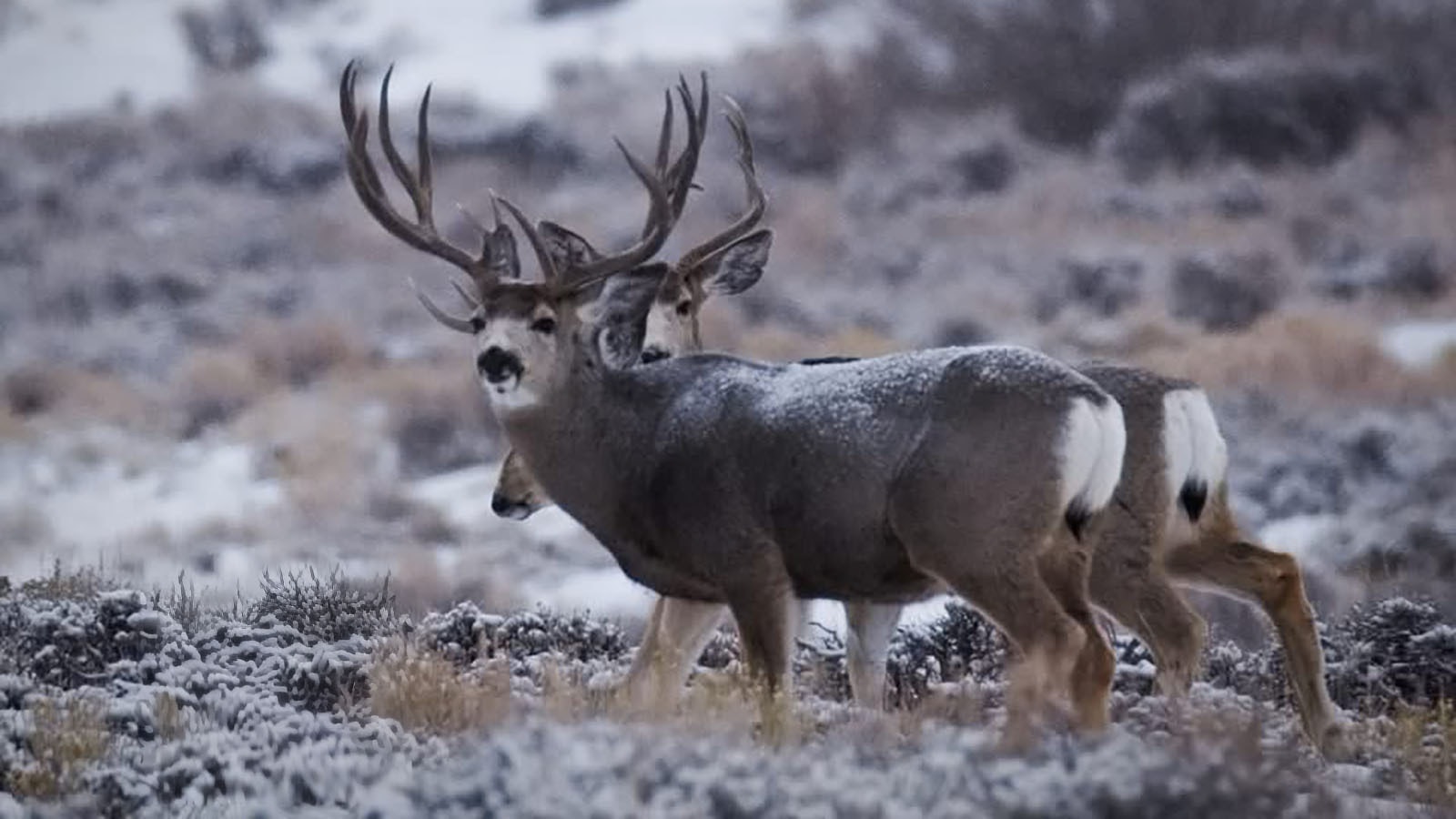Three American citizens are suing the National Park Service over its recent policy to eliminate cash payments at several sites throughout the United States.
In 2023, the NPS announced several national parks, monuments and historic sites would transition to “a fully cashless fee system,” only accepting credit or debit card payments for entrance and campground fees. Death Valley, Mount Rainer, Rocky Mountain and Hawai’i Volcanoes National Parks were all included in the cashless pilot program.
None of the NPS sites in Wyoming are included in the NPS's cashless pilot program. Cash is still accepted at all entrances to Yellowstone and Grand Teton National Parks.
But those filing the lawsuit say they fear the pilot program could expand and become policy at more or all national parks.
The NPS said removing cash payments at entrances and campsites “allows the park(s) to be better stewards of visitor dollars by reducing the cost of collecting and managing fees, increasing the amount of fee revenue available to support critical projects and visitor services, and improving accountability and reducing risk.”
The lawsuit, filed by Esther van der Werf of California, Toby Stover of New York, and Elizabeth Dasburg of Georgia, claims that eliminating cash payments violates federal law.
Since cash is legal tender in the United States, it should be accepted for any and all NPS transactions.
Furthermore, the plaintiffs argue that transitions exclusively to electronic payments would burden many visitors with processing charges from banks and make NPS sites inaccessible for many Americans.
The NPS has until May 16 to respond to the lawsuit and has yet to release a statement.
Wyoming Cashed Out
Evan Wambeke, a Cody resident, has spent several summers working at the Cody Country Chamber of Commerce. Although the Cody chamber doesn’t sell NPS passes, it does sell passes and permits for Wyoming State Parks, and Wambeke regularly assists tourists heading to the East and Northeast entrances to Yellowstone.
If Yellowstone were to transition to a cashless system, he could see many potential issues for visitors. And those issues would be especially difficult to resolve in the Greater Yellowstone region.
“It’s difficult to make anything about entering Yellowstone abundantly clear, especially with so many people going to the park,” he said. “You always get questions. You always get people asking where or how to buy the passes. I don't know if it can be effectively communicated in such a way that wouldn't cause issues on the east side of the park.”
In the lawsuit, Dasburg claims she was denied entry to Fort Pulaski National Historic Site when she tried to pay cash at the entrance. According to a written response Dasburg claims she received from the NPS, the solution was to buy a gift card at Walmart or a local grocery store, which would be accepted as electronic payment.
Gift cards could be a viable, if inconvenient, workaround a cashless system at dozens of NPS sites. However, Wambeke believes it would be logistically impractical at Yellowstone’s East and Northeast Entrances.
“You get to the gate, you're already in line, they say, ‘No cash,’” he said. “OK, where can I get a card? If that happened, you’d have to figure out how to get out of line, go back to Cody or Billings, get a card, and go back up.”
The nearest Walmart to the East and Northeast Entrances is the Walmart Supercenter in Cody. It’s a one-hour drive from the East Entrance and almost two hours from the Northeast Entrance.
Several businesses sell gift cards, but it's impossible to know if they'd be acceptable in an NPS cashless system until you get to an entrance. And its a long way back if it isn't.

A Real Issue For Yellowstone
Wambeke believes international travelers would encounter the most difficulties with a cashless system at any NPS site. He’s had his own difficulties with electronic payments while traveling abroad.
“I went to Europe, and my card didn't transfer,” he said. “It was a real pain to try to get it to work. I was planning on using cash, but I had a hard time with that.”
In his experience, Wambeke said domestic and international tourists have several different ways to make transitions: cards, cash and checks, another form of legal tender that would not be accepted in a cashless system.
Any bank will tell its customers that if they’re traveling and their card is declined, call the bank. For international travelers, successfully connecting with their bank can be tricky enough.
In northwest Wyoming, one does not simply dial and successfully make a call. They need to find reliable service first, something Wambeke noted isn’t possible in most of Yellowstone National Park and the surrounding area.
“You have to drive half an hour just for cell service back down toward Cody,” he said. “Imagine that. It’s never seemed like an issue before, but I keep thinking about those international travelers.”
Overall, Wambeke can see why the NPS would favor transitioning to a cashless system. But it’s already been a bumpy, litigious transition that could become even more tumultuous if implemented at the Yellowstone entrances.
“I get the inclination for the lack of cash,” he said. “It's quicker and more seamless with the way we're moving. But remember when Yellowstone shut down (in 2021 and 2022), a lot of tourists had no idea what was happening, even though there was an abundance of communication from the NPS.
“Not everybody knows where to look, and I think not everybody knows they need to look. I think, if nothing else, it would be a very bumpy transition.”
Andrew Rossi can be reached at arossi@cowboystatedaily.com.





